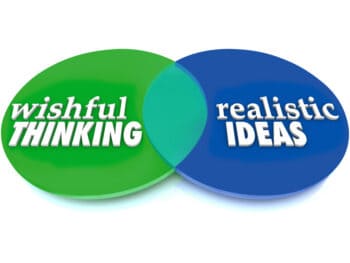Psychological and psychiatric injuries in workers’ compensation cases place many demands on members of the claim management team. These demands include understanding issues of compensability of mental health claims, managing the claims to mitigate exposure, reduce program costs, and ensure the injured employee is paid all benefits they are entitled to receive.
Compensability of Mental Health Claim
Mental health-related workers’ compensation claims can arise in a variety of instances and injuries. The compensability of the injury is driven by the statutory framework in place as jurisdictions vary on how such claims meet the statutory definition of a “personal injury.” This requires an understanding of the law and facts of the case.
- Physical/Mental Injuries: This is the most common type of case that jurisdictions accept as being compensable under a workers’ compensation act. This type of claim arises when the employee suffers a physical injury that produces sufficient mental stress or stimulus that results in physical symptoms that meet a threshold of being compensable. The concept of physical “impact” is required, and mental health claims without such contact to the employee are deemed insufficient.
- Mental/Physical Injuries: These cases are characterized by extraordinary mental stress that manifests, or culminates in a physical work injury. Legal standards for this type of injury varies, but usually includes instances where the stress from the work injury is beyond the ordinary day-to-day stress from which an ordinary employee is exposed. In layman’s terms, stress from the work injury culminates in a mental break down and can include stress over a period of time similar to physical workplace exposure cases.
Click Link to Access Free PDF Download
“The 6-Step Process To Determine Workers’ Comp Injury Causation”
- Mental/Mental Injuries: This type of claim is generally not compensable, but is an emerging area of workers’ compensation law given our growing understanding of mental health and its parity with physical injury claims. In these claims, there is a required mental stimulus that results in a mental injury. Common examples of these claims are employees who witness a serious or stressful event such as the death or severe injury or a co-worker or bystander. A frequent claim made by employees in mental/mental claims are Post-Traumatic Stress Disorder (PTSD).
Defending Mental/Mental and PTSD Claims
Experienced members of the claim management team know that these claims require hard work and a deep understanding of legal and medical issues. This includes an understanding of the law, and willingness to peel back the layers and understand what is going on in the employee’s past, and present.
PTSD is best defined by the Diagnostic and Statistical Manual of Mental Disorders (DSM-V), which is published by the American Psychiatric Association. Under the DSM-V, a true diagnosis of PTSD requires clinical observations and accurate documentation. In general terms, the following findings are either required or need to be present in conjunction with other factors:
- Documented stressor by either direct exposure, or second-hand information concerning a significant event;
- Intrusion symptoms such as unwanted upsetting memories, nightmares, flashbacks, etc.;
- Avoidance behaviors;
- Negative alterations in cognitions and mood;
- Alterations in arousal and reactivity;
- Functional significance that creates symptoms of distress or functional impairment (g., social, occupational); and
- Exclusion not due to a medical condition or some form of substance abuse.
It is important to investigate claims of mental health and PTSD-related injuries in an aggressive manner. This includes a complete investigation of the employee’s prior medical history and their socio-economic and familial background. It will also include the use of a reputable medical expert, preferably a psychiatrist, or neuropsychiatrist with clinical experience.
Conclusions
Work injuries that involve a psychological and/or psychiatric condition challenge members of the claim management team. It is important they understand the law and complete a thorough investigation. This includes knowing everything about the injured employee, and a willingness to leave no stone unturned.

Author Michael Stack, CEO Amaxx LLC. He is an expert in workers’ compensation cost containment systems and helps employers reduce their workers’ comp costs by 20% to 50%. He works as a consultant to large and mid-market clients, is a co-author of Your Ultimate Guide To Mastering Workers Comp Costs, a comprehensive step-by-step manual of cost containment strategies based on hands-on field experience, and is the founder & lead trainer of Amaxx Workers’ Comp Training Center.
Contact: mstack@reduceyourworkerscomp.com.
Workers’ Comp Roundup Blog: https://blog.reduceyourworkerscomp.com/
©2019 Amaxx LLC. All rights reserved under International Copyright Law.
Do not use this information without independent verification. All state laws vary. You should consult with your insurance broker, attorney, or qualified professional.














